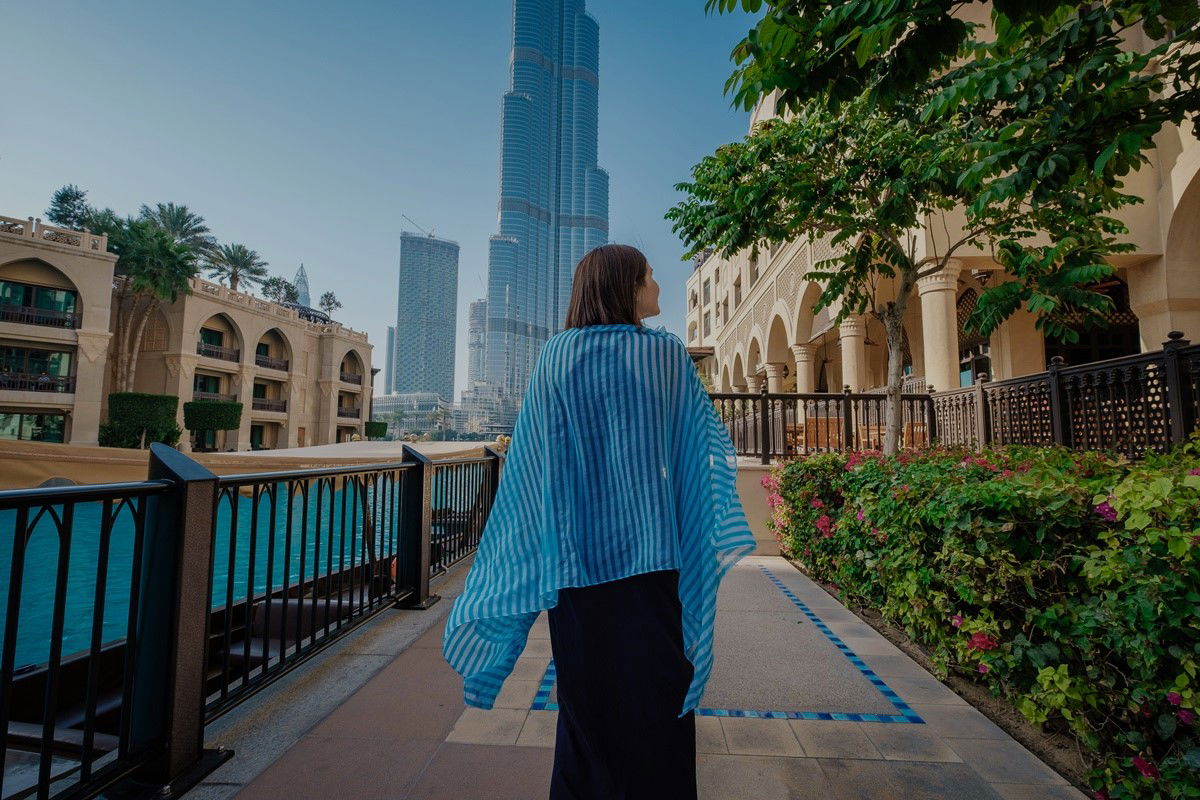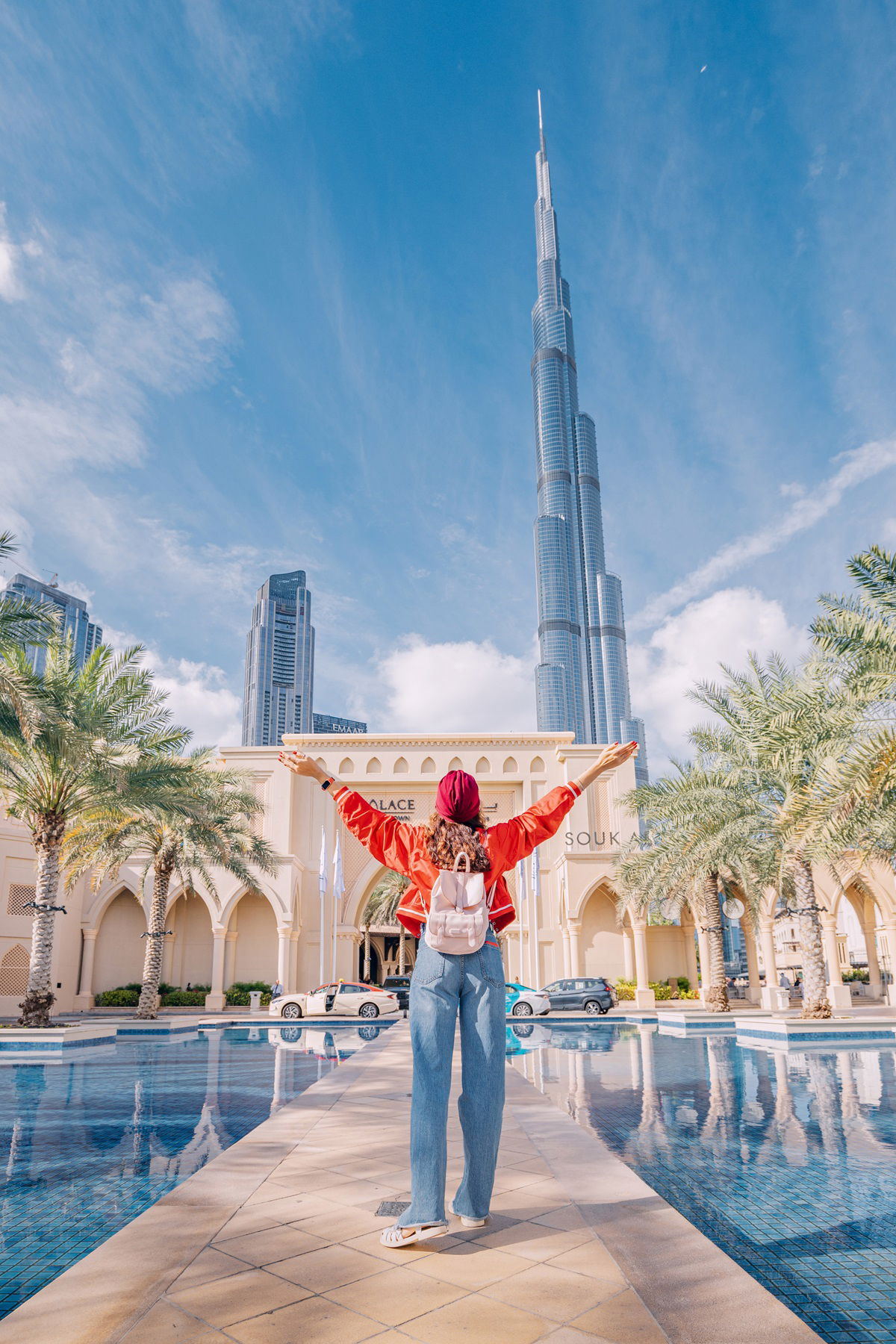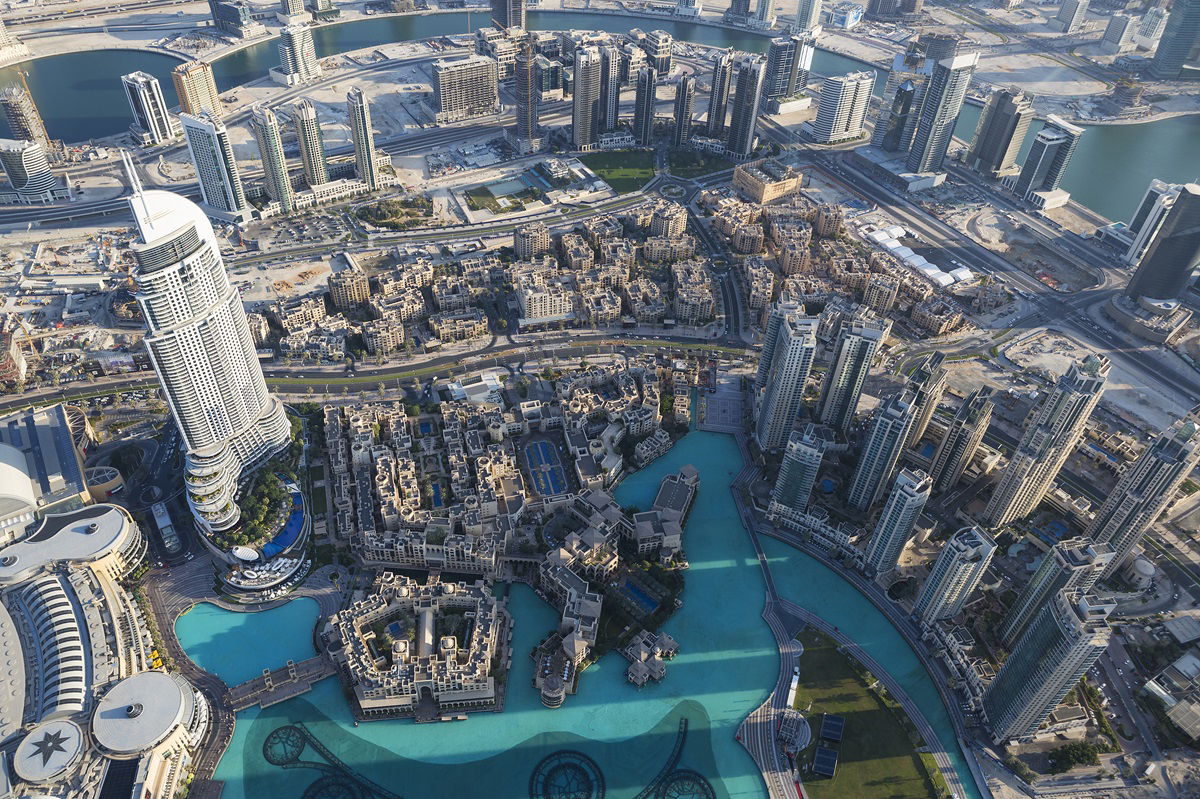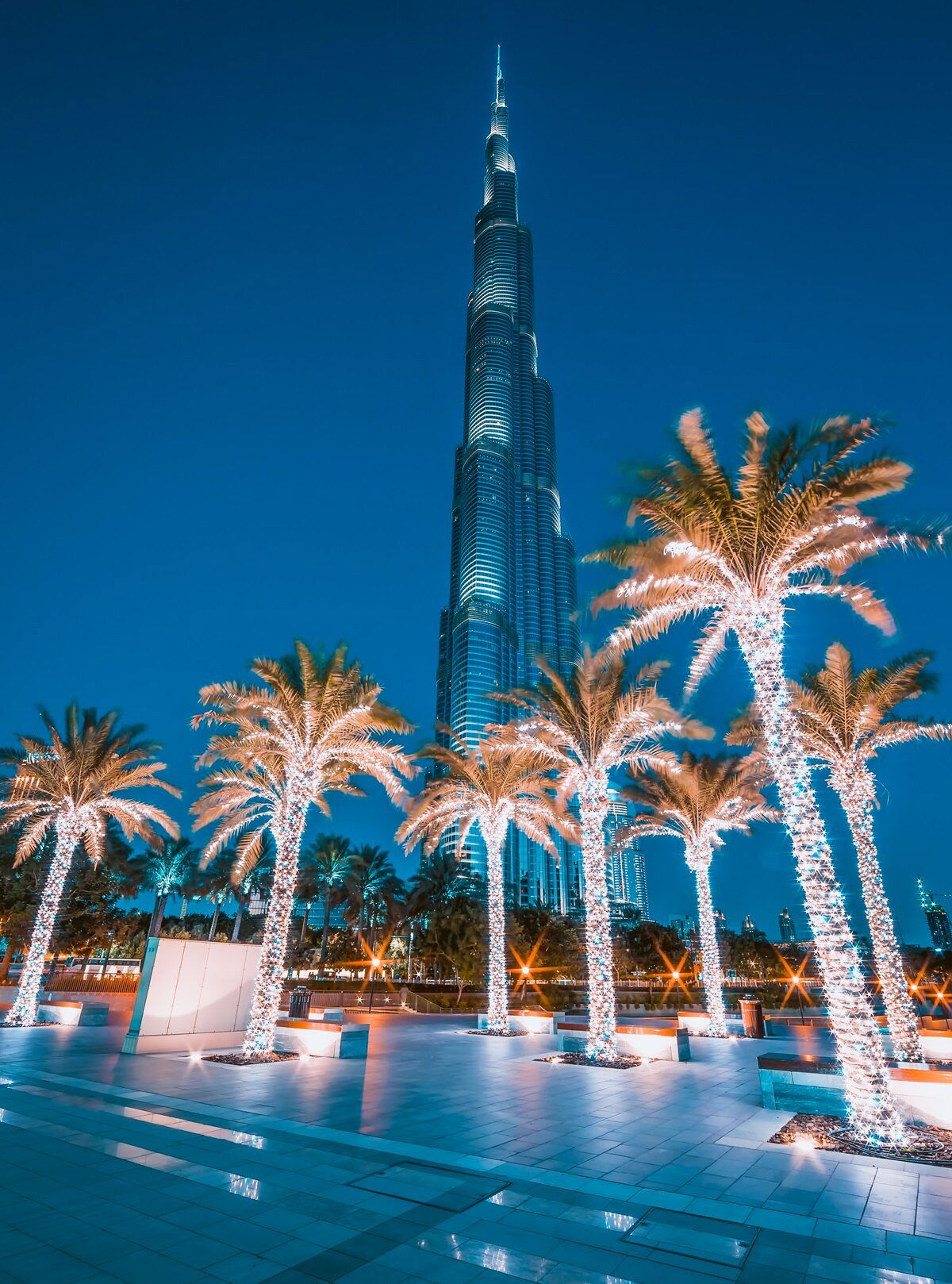
Emigrating to Dubai
Warm temperatures all year round, luxury and skyscrapers wherever you look – Dubai is an increasingly popular expat destination. In particular, influencers who emigrate to Dubai have become very high profile. But emigrating to Dubai is also an interesting prospect for many private individuals – especially since you do not have to pay income tax there. What are the pros and cons of emigrating to Dubai? What is life like there, and how easy is it to get a visa? We will explain all this to you in our article.
Why emigrate to Dubai?
As was already mentioned, one of the main reasons for emigrating to Dubai is that, as a private individual, you do not have to pay income tax. On the other hand, however, there are no social benefits such as statutory health insurance or pension. It is up to each individual to arrange for their own social security themselves.
But many people also want to emigrate to Dubai for the glamour and almost limitless luxury. Everything is just bigger, further, better. The city never stands still and is always evolving. Dubai enjoys warm weather day in, day out, summer and winter. In summer, however, temperatures can also climb to over 40 degrees.
But expats also appreciate the low crime rate more than anything. Generally speaking, burglaries or theft are relatively rare, due to the harsh penalties handed down to perpetrators.
Emigrating to Dubai: disadvantages
On the flip side of all the positives, there are also a few negative aspects that you should take into account when considering emigration to Dubai.
Restricted freedom of expression of the press: Criticism of the government can be punished. Nor does the press in Dubai enjoy a particular high degree of freedom, with the United Arab Emirates ranked 160th (out of 180) in Reporters Without Borders’ press freedom ranking.
Human rights violations: Criticism for violation of human rights is levelled time and again at the United Arab Emirates, to which Dubai belongs, as is also confirmed by the organisation Amnesty International. Homosexuality is illegal in the United Arab Emirates, for example, and is punishable by at least six months in prison. However, women’s rights have greatly improved in recent years, and new laws are constantly being passed to improve the situation of women in Dubai. For instance, 45 days of paid maternity leave is statutory in Dubai.
High costs: Although you will not have to pay income tax, you will also receive no social benefits and will face higher rents and costs of living.
Requirements: emigrating to Dubai
To emigrate to Dubai, you must meet a few requirements:
- Job: For most visas, you will need a secure job, since your employer acts as your sponsor for the visa. In this case, you have to be able to demonstrate a permanent employment contract.
- Health & character: All applicants aged 18 and over must be able to prove that they are healthy with a medical examination. Checks will also be made as to whether you have a criminal record.
- Health insurance: You also need proof of health insurance for your visa. If you have a permanent job in Dubai, you will usually receive health insurance through your employer.
- Rental agreement: For your visa, you must be able to prove that you already have a rental agreement or own a property in Dubai.
- Financial proof: Divorced or widowed women must be able to prove that they can support themselves.
Visa for Dubai
To be allowed to stay in Dubai long term, you will need a “residency visa”. Different types of visas are available:
- Green Visa: With this visa, you do not need a sponsot, but rather you sponsor yourself. However, you need an employment contract and there are strict requirements as to what qualifications you must have: you must have at least a bachelor’s degree, for example. The Green Visa allows you to stay in Dubai for up to five years.
- Standard Work Visa: For the Standard Work Visa, you need a sponsor and thus also a permanent job. This visa allows you to live and work in Dubai for two to three years, depending on the field you work in.
- Blue Visa: This new visa allows people who have made an important contribution to environmental protection and sustainability, both locally and internationally, to live and work in Dubai. This visa entitles the holder to stay for up to ten years.
Life in Dubai
But now more about life in Dubai, which belongs to the United Arab Emirates. Dubai has a population of 3.6 million. The local currency is dirhams (AED), and the metric system is also used. Traffic drives on the right-hand side. The official language in Dubai is Arabic, which means that official documents must be translated into Arabic. It should also be noted that the Arabic language uses the Arabic alphabet rather than the Latin one, so you will also have to learn another writing system for the local language.
The United Arab Emirates now has more private than public health facilities. Both offer high standards and have well-trained, usually even international, staff. This means that you can also usually communicate to a certain extent in English. Pharmacies are easy to find in Dubai and are usually even open 24 hours. You should not forget to keep the receipts so that you can submit the costs to the health insurance company. Please note that sedatives, antidepressants and sleeping pills are highly regulated.
Public schools are usually not accessible to foreign non-Muslim children. You should therefore take the cost of international private schools into account. British and American curricula are the most widely used, but there is also a German international school in Dubai. Students at international schools must learn Arabic in any case, even if it is not an exam subject. The school week in Dubai, like the working week, runs from Sunday to Thursday.
In general, the cost of living in Dubai can be said to be very high, depending on the standard of living. The rental costs in Dubai can be roughly compared to those in major German cities such as Munich. If you are imagining something luxurious for yourself, however, you are going to have to dig deeper into your pocket. Food can be more expensive or even cheaper than in Germany, depending on where it comes from: European products are more expensive and products from Asia, for example, are cheaper. Eating out in Dubai can cost up to 300 euros or only 60 euros. A family of four should expect monthly fixed costs of about 5,000 to 10,000 euros.




Working in Dubai
The working week in Dubai runs from Sunday to Thursday. However, a 6-day week is not uncommon either. In full-time employment, you can expect to work 40 to 48 hours. Also, most people in Dubai have 20 days of holiday leave a year.
English is very widely spoken in Dubai as a business language, which makes things particularly easy for immigrants. Salaries are usually higher than in Germany. In addition, as mentioned earlier, you do not have to pay income tax in Dubai, but you do not receive any social benefits such as a statutory pension or social security.
The most jobs can be found in the following industries:
- IT
- Finances
- Engineering
- Marketing
- Tourism
- Health services
A few German companies are also represented in Dubai. You could enquire with them and maybe you will find it easier to get a permanent job here.
You can submit your job application for Dubai in English, but you should make it is error-free. For your application, you will need a CV with a photo, an informative cover letter and your most important certificates and references. Be sure to have them translated into English and certified.
In recent years, women’s rights have been strengthened in Dubai. Women are now on an equal footing with men in terms of salary. Maternity protection is now regulated and guidelines against discrimination in the workplace are also in place. Women are represented in all professions and leadership positions in Dubai, as well as in politics.
Translations for your Dubai visa
If you need to submit documents for your visa that are not in English or Arabic, you will need to have them translated and certified.
Checklist: Emigrating to Dubai
So, you now want to get everything ready for your emigration to Dubai? We have a corresponding checklist for you here:
- Check visa requirements
- Build up financial reserves
- Find a job
- Found a job? Then you now need a “Health Card” (health insurance card) for your visa
- Prepare documents for visas, including translation of your documents
- Apply for your visa
You have received your visa for Dubai? Congratulations! Now you need to take the following steps:
- Look for accommodation
- Prepare for the move
- Apply for an Emirates ID
- Have your driver’s licence transferred
First step after your arrival in Dubai:
- Open a bank account
FAQs: Emigrating to Dubai
Yes, with the “Retirement Visa” you can emigrate to Dubai as a pensioner. To do this, you need a property in Dubai worth at least 2 million dirhams (approx. 530,000 euros), capital assets of at least 1 million dirhams (approx. 265,000 euros) and, if possible, a monthly income of at least 20,000 dirhams (approx. 5,300 euros). You will also need health insurance.
Many people emigrate to Dubai because as an employee you do not have to pay income tax there. However, nor will you receive social benefits such as statutory health insurance or a pension.
In order to emigrate to Dubai, you have to apply for a residence visa, such as the “Green Visa” or the “Standard Work Visa”.
As starting capital for emigration to Dubai, you should have at least 15,000 to 25,000 dirhams (approx. 4,000 to 6,800 euros) ready for your visa, health insurance, living expenses, etc.
At the age of 18, you are also considered to be of age in Dubai and are allowed to emigrate there. However, there may be hurdles when applying for a visa and concluding a rental contract.
You will usually need to have a job set up in Dubai to be able to apply for a visa there, unless you have enough capital or own a property in Dubai. For a visa, you always need health insurance, the so-called “Health Card”. It is advisable to build up some cash reserves.

